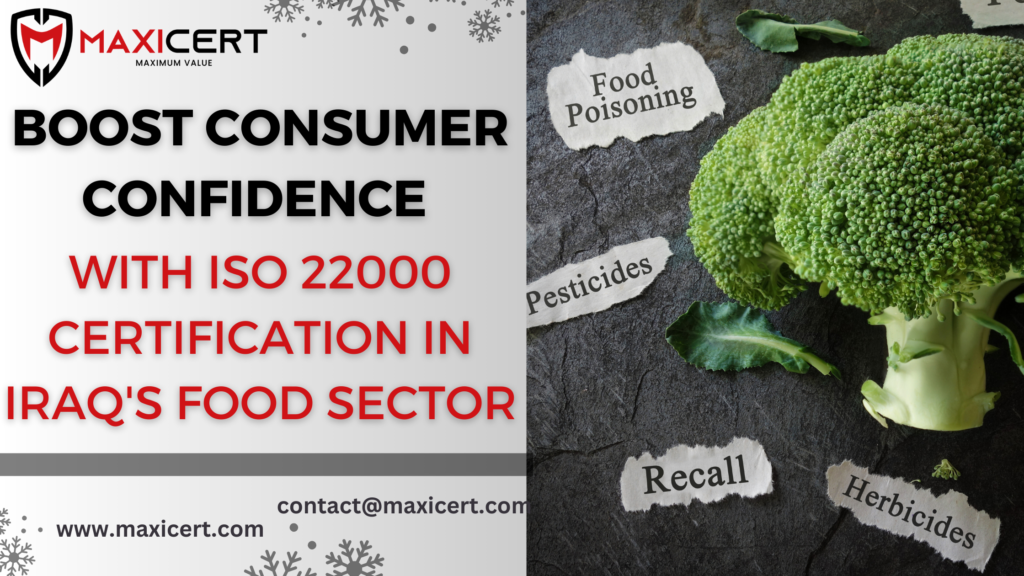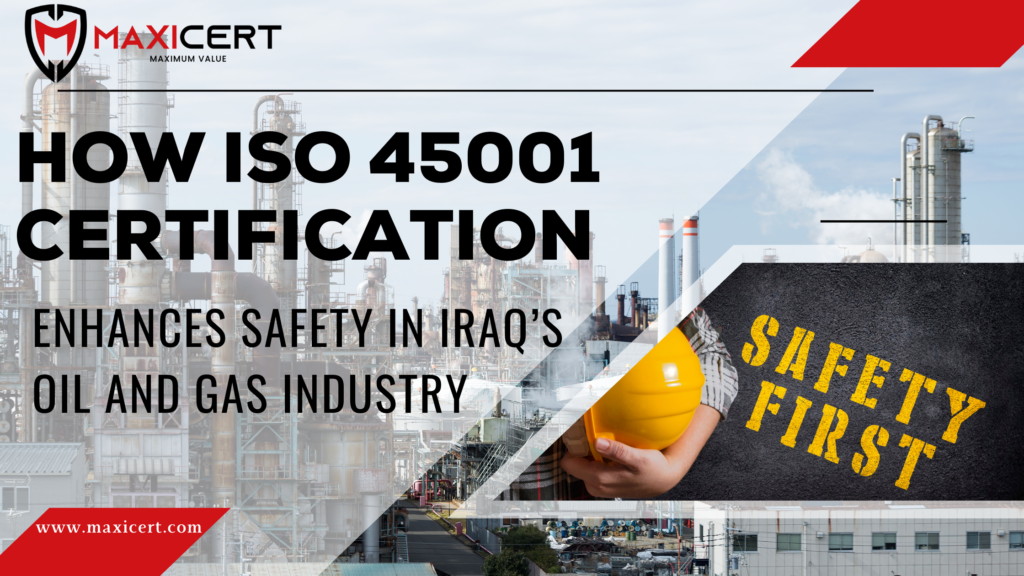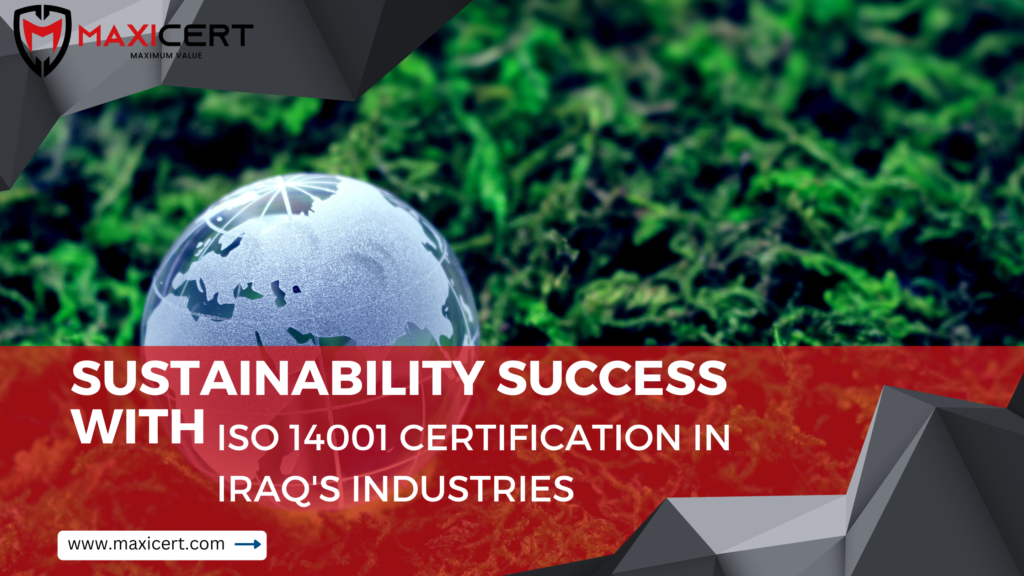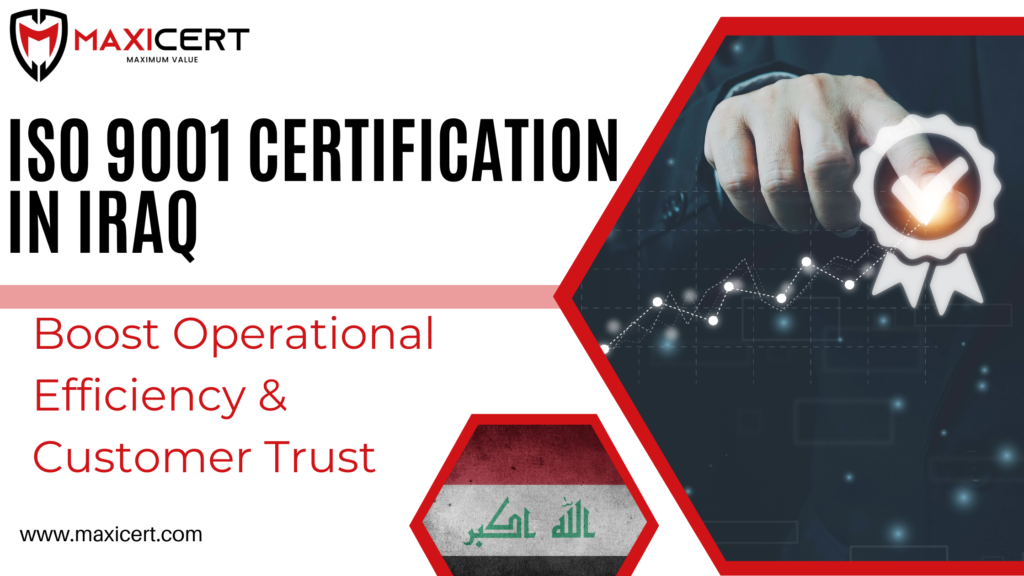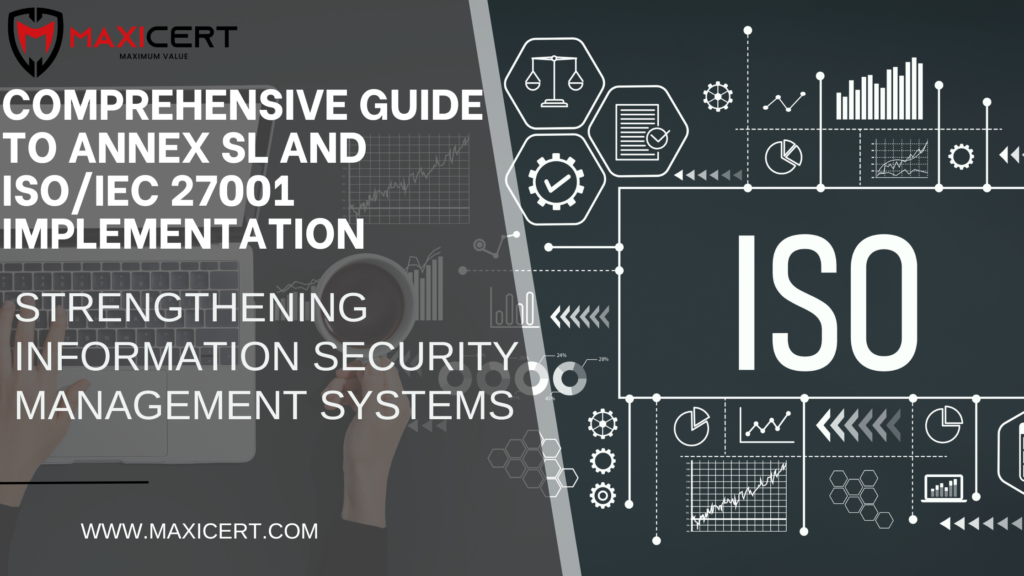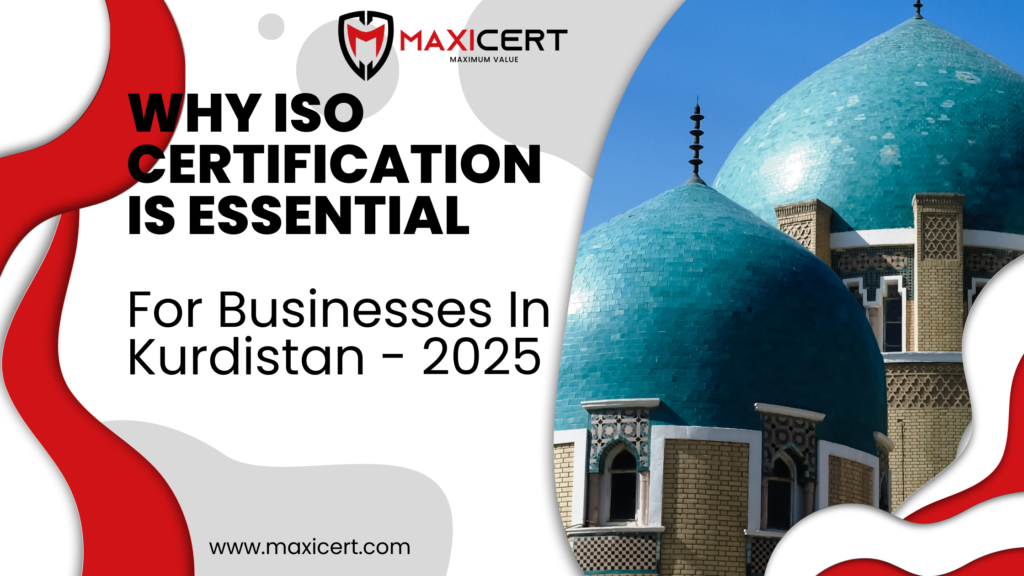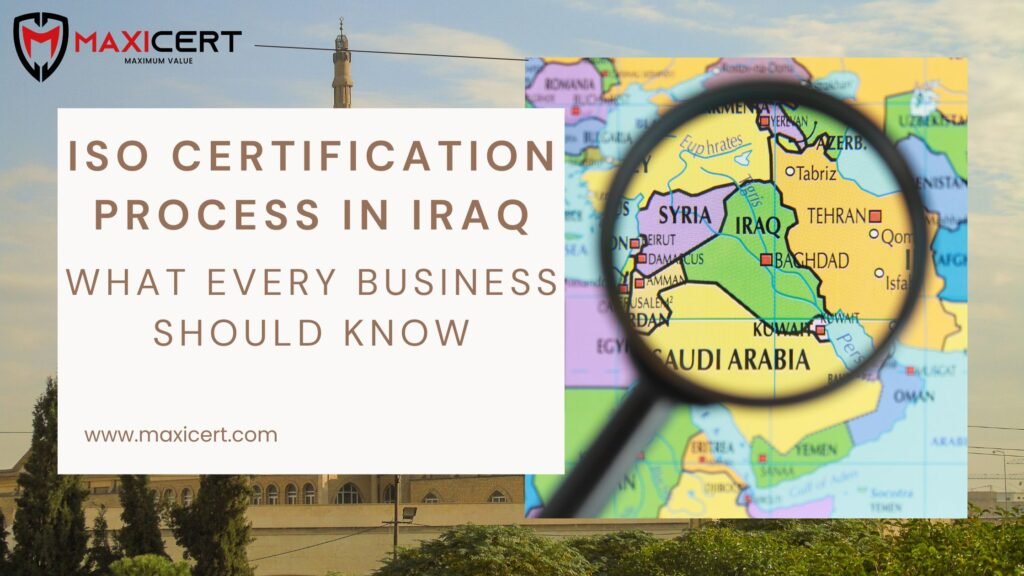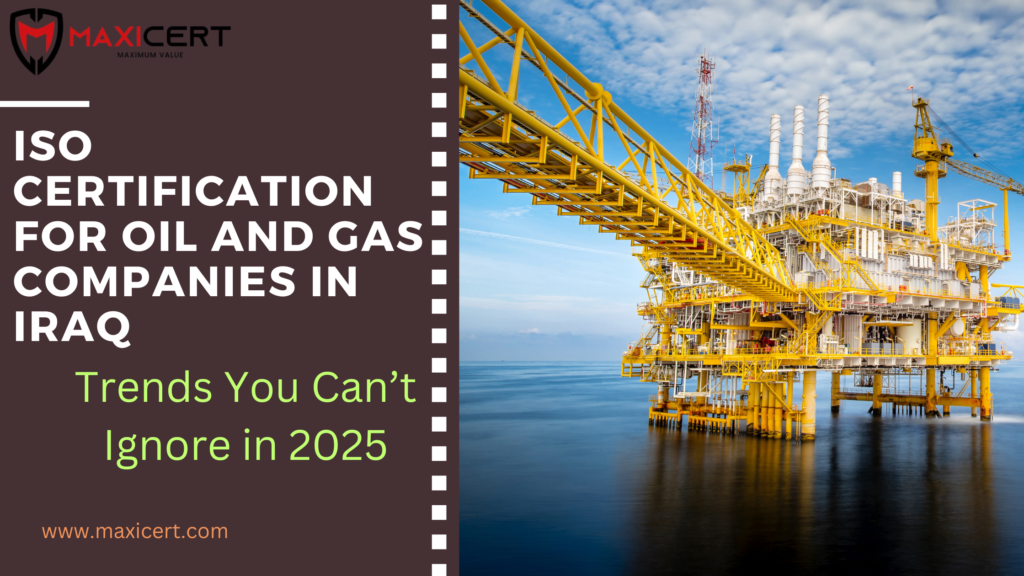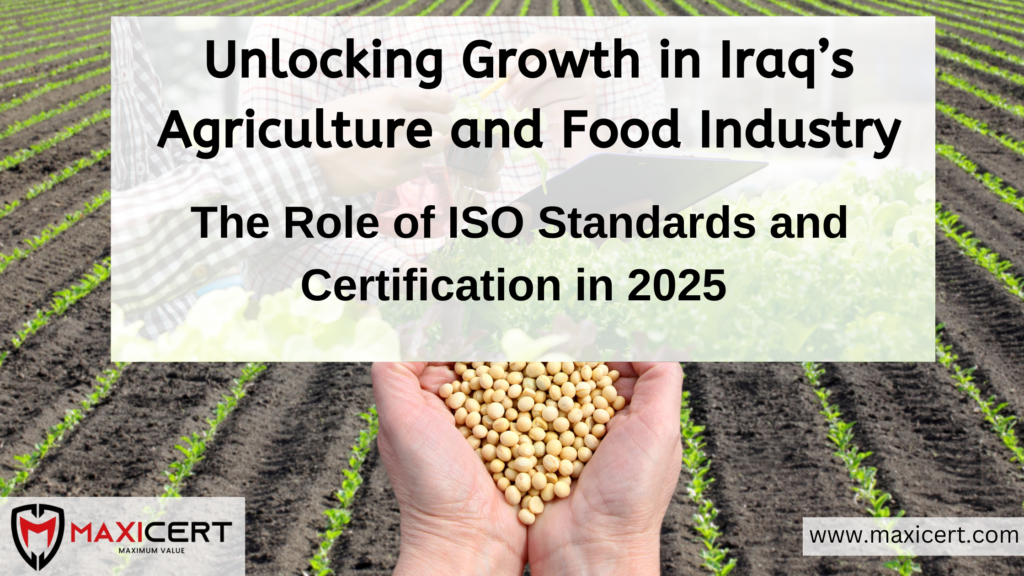Boost Consumer Confidence with ISO 22000 Certification in Iraq’s Food Sector
Boost Consumer Confidence with ISO 22000 Certification in Iraq’s Food Sector Introduction In the modern world of fierce competition in the food industry, building the consumer’s trust and keeping them safe are paramount. With ever increasing concern from the consumers and the regulators, businesses in Iraq’s food industry are always looking for better ways to manage and ensure food safety. ISO 22000 Certification in Iraq ensures safety and quality management for food products from production to consumption. It improves consumer confidence, supports international standards, and demonstrates safety in the food chain which is the concern for most companies. In the modern world of fierce competition in the food industry, building consumer trust and ensuring safety are paramount. With increasing concerns from both consumers and regulators, businesses in Iraq’s food industry are always looking for better ways to manage food safety. ISO 22000 Certification in Iraq ensures the safety and quality management of food products, from production to consumption. It boosts consumer confidence, supports international standards, and demonstrates safety across the food chain. Let’s take a closer look at why ISO 22000 Certification can revolutionize the food industry in Iraq. Request a free Quote Setting the Stage: The Food Industry in Iraq Iraq’s food industry has more than quadrupled in the past few years due to the demand for diversified food products and the need for stringent food safety standards. Initially, as food businesses scale, they also face problems dealing with food borne diseases, contamination, and competition from other regions or countries. A large number of companies have started adopting ISO 22000 standards to ensure product safety. In Iraq, acquiring an ISO 22000 certification goes beyond compliance. It serves as a powerful means to enhance business activities, improve procedures, and foster trust among customers. This certification is dedicated to managing food safety and ensures safety standards are observed at each stage of food production. The Relevance of ISO 22000 Certification In Iraq ISO 22000 serves as an International Standard which defines the requirements for a food safety management system. No matter if you operate in agriculture, industry, food and beverage service, or food retailing, ISO 22000 assists you in guaranteeing best practices that will make food safe for consumption at every level of the supply chain. With its increasing significance, the ISO 22000 certification offers protection against public health concerns and enhances consumer trust in Iraq where food security and safety is becoming more important. The certification also serves as a proof of compliance with food safety rules while advancing international trade by meeting the needs for international standards of food safety. Painstaking care must be taken when dealing with the food business because negligence can result in unfavorable outcomes such as endangering consumer health or damaging a brand’s image. Implementing ISO 22000 prevents these outcomes using safety procedures at every stage of the food chain. By complying with these policies, businesses get to position themselves as authorities in their field, motivate others to follow their lead, and earn valuable market share. Building Consumer Trust Through Certification With globalization today, consumers are more conscious about food safety than other times. For instance, customers expect answers from the brands they purchase for, especially concerning the nature and safety of their food. As a marketing tactic, ISO 22000 Certification provides reassurance to customers that products are not only safe but also checked and monitored against international expectations. In most cases, people are more willing to accept businesses that have ISO 22000 certification because they have taken the pains to demonstrate adherence to the most stringent food safety standards. ISO 22000 is not about fulfilling obligations but rather about enabling fresh commitment towards food safety and quality which will gain bigger customers and trustworthy brands. How ISO 22000 Works: The Core Principles ISO 22000 works on the basis of Hazard Analysis and Critical Control Points which is HACCP, a methodical preventive strategy for food safety. Risks are identified, evaluated, and controlled at each step of the food creation cycle from raw material sourcing to processing, packaging, and even distribution. To gain the ISO 22000 Certification, a business must: Establish a Food Safety Management System (FSMS): A business needs to establish policies and procedures that provide guidance on how to guarantee safety. Implement Risk Management Steps: Anticipate risks that can occur within your food safety management system and take actions to eliminate the risk. Create a Hazard Analysis Plan: Identify the production steps which may have the highest risk for food safety hazards and decide on critical control points for these steps. Monitor and Measure: Effectiveness of the identified food safety system should always be evaluated and improved if necessary. Compliance and Review: Review the FSMS if it adheres to food safety international standards and make sure it is up to date By certainly following these principles, food business in Iraq can reduce risks of food borne illnesses, contamination and other safety hazard issues. ISO 22000 Certification Reduces Recall Risks ISO 22000 certification minimizes the risk of food recalls, which can be costly and damaged to a business’ reputation. Implementing the ISO 22000 food safety standards allows for hazard identification and prevention measures to be put in place before consumers are put at risk. This reduces the chances of contaminated products entering the market and minimizes the economic and operational repercussions of a recall. Businesses seeking to maintain brand image and customer loyalty should take this safeguard. ISO 22000 Certification: Driving Business Growth Increased Market Access: Food product businesses can easily create a presence in local and international markets due to increased competitiveness with products that meet international food safety and quality standards. Regulatory Compliance: Businesses avoid local and international legal actions and penalties due to non-compliance with food safety regulations with ISO 22000 standard certification. Operational Efficiency: With a certified Food Safety Management System (FSMS), businesses tend to increase their efficiency in operations with lean process flows and lower the chances of expensive recalls. Brand Differentiation: Certifying with ISO 22000 enables
Boost Consumer Confidence with ISO 22000 Certification in Iraq’s Food Sector Read More »



